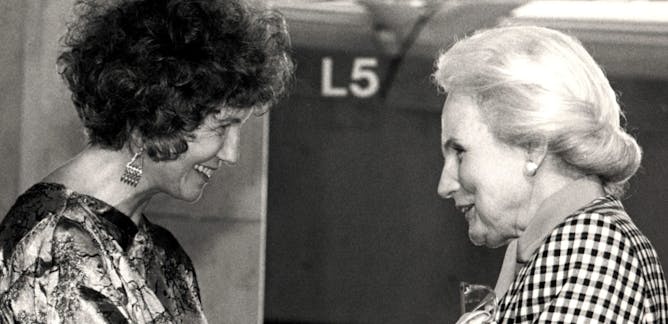|
The Toronto Star published a shocking story last weekend and the reverberations from the article have rocked the literary landscape across Canada and around the world. The daughter of the late Alice Munro – the only Canadian woman to win the Nobel Prize for literature – wrote a first-person story in the Star in which she recounted how her stepfather sexual abused her when she was nine years old. Andrea Skinner eventually told her mother about the abuse, but Munro remained silent and decided to stay with her husband.
For your weekend reading, we have published a new story about what these revelations will mean to Munro’s legacy. Carrie Dawson, Dean of Arts and Science and Professor of English at Mount Saint Vincent University, says the news about the abuse will causes her to re-read Munro’s stories differently.
“As the stories about Munro shift and gather darkness, so, too, do the stories she authored,” writes Dawson. “For me as a literature scholar, the question is not should we return to them, but how will we read them now?”
Also for today: an insightful analysis of another big story from this past week – the NATO summit held in Washington. Stephen Saideman, the Paterson Chair in International Affairs at Carleton University, attended the summit and writes about growing concerns of what Donald Trump’s return to the White House could mean for the military alliance.
These and a few of my other favourite stories published by the global network of The Conversation this week will get you through the weekend. We’ll be back in your Inbox on Monday.
|
Weekend Reads
|

Carrie Dawson, Mount Saint Vincent University
Scholars have an opportunity — if not an obligation — to use our re-readings to reckon with sexual abuse of children and the silence that so often surrounds it.
| |

Rebecca Sullivan, University of Calgary
An essay by Alice Munro’s daughter about childhood sexual abuse has forced a reckoning with the legacy of the feminist icon and writer acclaimed for her ability to give voice to women’s lives.
|

Stephen Saideman, Carleton University
NATO’s primary tenet is that an attack on one member is an attack on all. Donald Trump has made clear that he won’t uphold that core principle, putting the future of NATO at risk if he’s re-elected.
| |

Shannon Bow O'Brien, The University of Texas at Austin
Ronald Reagan, George H.W. Bush and other presidents showed that getting limited information as president can have some benefits – but also risks.
|

Paul Mansell, Staffordshire University
Athletes who see stress as beneficial are likely to interpret moments like a knockout match in the European Championships as a challenge rather than as a threat.
| |

Rachel K Ownsworth, Anglia Ruskin University; Annelie Harvey, Anglia Ruskin University; Helen Keyes, Anglia Ruskin University
Regularly watching sporting events – whether in person or on TV – is linked to higher wellbeing.
|

Aaron Boley, University of British Columbia; Samantha Lawler, University of Regina
As the number of satellites and rocket launches increases, so does the amount of discarded rockets and components. This space junk risks falling to Earth, as it did in Saskatchewan this spring.
| |

James Day, University of California, San Diego
These rare rocks come in a few different types, which can tell geologists about Mars’ volcanic past and hint at its potential habitability.
|
|
|

Gemma Ware, The Conversation
Tim Bale and Safia Dahani discuss the French and UK election results on The Conversation Weekly podcast.
|